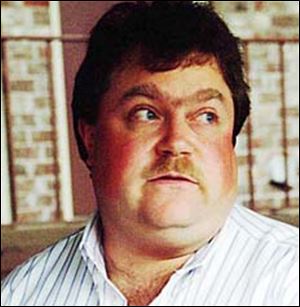
Richard Jewell, security guard suspected but cleared in Olympic bombing, dies at 44
8/29/2007
Richard Jewell, the former security guard who was erroneously linked to the 1996 Olympic bombing, dies Wednesday at age 44.
ATLANTA Richard Jewell, the security guard suspected and then cleared of planting a bomb at Centennial Olympic Park during the 1996 Atlanta Olympics, was found dead Wednesday, the Georgia Bureau of Investigation said.
Jewell, 44, was found dead in his west Georgia home, GBI spokesman John Bankhead said.
"There's no suspicion whatsoever of any type of foul play. He had been at home sick since the end of February with kidney problems," said Meriwether County Coroner Johnny Worley.
The GBI planned to do an autopsy Thursday, Bankhead said.
Lin Wood, Jewell's longtime attorney, said in an e-mail to The Associated Press that he was "devastated" by the news. He declined to comment further, saying he was in New York trying to get back to Atlanta.
Jewell was initially hailed as a hero for spotting a suspicious backpack in a park and moving people out of harm's way just before a bomb exploded during a concert at the Atlanta Summer Olympics.
The blast killed one and injured 111 others.
Three days after the bombing, an unattributed report in The Atlanta Journal-Constitution described him as "the focus" of the investigation.
Other media, to varying degrees, also linked Jewell to the investigation.
Jewell was later cleared of any wrongdoing. He was never arrested or charged, although he was questioned and was a subject of search warrants.
As recently as last year, Jewell was working as a sheriff's deputy.
Eighty-eight days after the initial news report, then-U.S. Attorney Kent Alexander issued a statement saying Jewell "is not a target" of the bombing investigation and that the "unusual and intense publicity" surrounding him was "neither designed nor desired by the FBI, and in fact interfered with the investigation."
Eventually, the bomber turned out to be anti-government extremist Eric Rudolph, who also planted three other bombs in the Atlanta area and in Birmingham, Ala. Those explosives killed a police officer, maimed a nurse and injured several other people.
Rudolph was captured after spending five years hiding out in the mountains of western North Carolina. He pleaded guilty to all four bombings last year and is serving life in prison.
Jewell told the AP last year that Rudolph's conviction helped, but he believed some people still remember him as a suspect rather than for the two days in which he was praised as a hero.
"For that two days, my mother had a great deal of pride in me that I had done something good and that she was my mother, and that was taken away from her," Jewell said around the time of the 10th anniversary of the bombing. "She'll never get that back, and there's no way I can give that back to her."
Read more in later editions of The Blade and toledoblade.com.